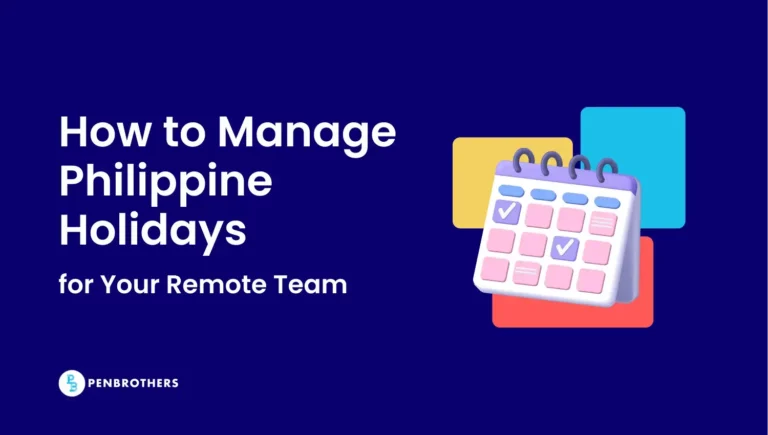You’ve gone through rounds of interviews, impressed the hiring team, and finally received a job offer, only to find the salary is lower than expected. Now you’re stuck. Should you accept it to avoid seeming ungrateful? Should you push back and risk losing the offer? Or worse, what if they say no and you’re left with nothing?
Knowing how to negotiate a salary offer can make the difference between settling for less and securing what you truly deserve.
Many job seekers, especially in the Philippines, struggle with salary negotiations. Cultural norms often discourage pushing back on offers, and many fear being seen as difficult or replaceable. Yet, employers expect candidates to negotiate, and those who don’t often accept salaries below their market value limiting their long-term earning potential.
The truth is, that salary negotiation isn’t about confrontation. It’s about advocating for fair compensation based on your skills and experience. This guide provides practical strategies, proven scripts, and confidence-boosting techniques to help you negotiate effectively, so you don’t leave money on the table.
Key Takeaways
- A Professional and Expected Business Discussion: Salary negotiation should be approached as a professional business discussion, not a personal confrontation. Most employers expect candidates to negotiate, and doing so confidently is often viewed as a positive sign of your business acumen.
- Data is Your Strongest Form of Leverage: Do not enter a negotiation without preparation. You must research your market value using industry salary guides, peer comparisons, and other data. Use this evidence to justify your request based on the value you bring, not just what you want.
- Negotiate After the Formal Offer, and Consider the Full Package: Timing is critical. You should only begin salary negotiations after you have received a formal, written job offer. Remember to look beyond the base salary and be prepared to negotiate the total compensation package, which can include bonuses, additional leave, and professional development funds.
- The Risk of Losing an Offer is Low if You are Professional: A common fear is that negotiating will cause a company to withdraw its offer. This is very rare when the negotiation is handled professionally and respectfully. An offer is typically only at risk if a candidate is unrealistic in their demands, aggressive in their tone, or issues ultimatums.
Why Salary Negotiation Matters
Know Your Market Value
One of the biggest mistakes job seekers make is accepting a salary without researching industry standards. Employers rarely start with their best offer, and failing to negotiate can lead to years of being underpaid.
Scenario 1:
Ana, a graphic designer, receives a job offer of ₱35,000 per month. She’s excited to get the role, but a quick search on LinkedIn Salary Insights shows that designers with her skills typically earn ₱45,000–₱55,000. Without negotiating, she risks leaving ₱10,000–₱20,000 per month on the table.
How to respond:
“Thank you for the offer! I’m excited about this opportunity. Based on industry benchmarks, I was expecting something closer to [target range]. Can we explore an adjustment?”
Your Starting Salary Sets the Tone for Future Earnings
If you start with a lower salary, your future raises and bonuses will also be lower. Over time, this can cost you millions in lost income.
Scenario 2:
Marco, a software engineer, accepts a starting salary of ₱50,000 without negotiation. After two years, his company gives a 5% annual raise—increasing his salary to ₱55,125. If he had negotiated just ₱10,000 more at the start, that same raise would have brought his salary to ₱66,150—a ₱130,000+ difference in just two years.
Do Employers Expect You to Negotiate Salary?
Yes, most employers expect candidates to negotiate. They rarely present their highest offer initially, leaving room for discussion. Employers who don’t negotiate often accept lower-quality candidates or face higher turnover rates.
When you learn how to negotiate your starting salary, you signal confidence and business awareness. Employers view this positively: it suggests you understand your value and will advocate for company interests too.
The key is approaching negotiation professionally. Employers want to see you can handle difficult conversations diplomatically, a skill valuable in any role.
When & How to Start Negotiating
Time It Right
Negotiate only after receiving a formal offer but before signing the contract. If the employer brings up salary too early, deflect the question.
If salary expectations come up early, here’s how to respond:
“Before talking numbers, I’d prefer to get a clearer picture of the role to determine appropriate compensation.”
Prepare Your Case with Data
Employers won’t raise your salary just because you ask. You need evidence—salary research, industry standards, and your unique qualifications.
How to present your case:
“I appreciate the offer. Based on my experience and market data, I was expecting a salary closer to [target range]. Can we discuss this?”
How Do I Respond to a Low Salary Offer?
Stay positive while expressing your concerns. Never accept immediately or reject outright—both close off negotiation opportunities.
Try this response: “Thank you for the offer. I’m excited about this opportunity. Based on my research and experience, I was expecting something closer to ₱[target amount]. Could we explore adjusting the compensation?”
If they ask for specifics, provide a range: “Market research shows this role typically pays ₱40,000-₱50,000. Given my [specific qualifications], I believe ₱45,000 would be appropriate.”
Always frame it as finding mutual value, not making demands.
Overcoming Hesitation & Building Confidence
Reframe Negotiation as a Professional Discussion
Many job seekers hesitate to negotiate, fearing they’ll appear pushy. In reality, employers expect it, and those who negotiate are often seen as more confident and business-savvy.
Scenario:
Jasmine, an HR specialist, is afraid to negotiate because she doesn’t want to appear demanding. Instead of making a rigid demand, she frames it as a discussion:
“This opportunity excites me, and I’m eager to make a real difference. Based on my experience and market data, I was hoping for something closer to [target salary]. Is there room to adjust the offer?”
Practice & Role-Play
Rehearsing with a friend or mentor builds confidence and ensures you sound professional.
When the employer makes it clear, ‘This is our final compensation offer.’
How to Respond:
“I understand. Before making a decision, could we discuss other aspects of the compensation package, such as performance bonuses or remote work flexibility?”
Use Silence as a Tool
Once you state your salary request, pause. Many job seekers feel uncomfortable with silence and start talking, often negotiating against themselves. Let the employer fill the silence instead.
Effective Salary Negotiation Strategies
Look Beyond Just Base Salary
If the employer can’t increase base pay, negotiate other benefits:
- Performance-based bonuses
- Extra paid vacation days
- Work-from-home flexibility
- Training and certification reimbursements
- Sign-on bonuses
Example script:
“I understand if the base salary is fixed. Would there be flexibility in performance-based incentives or additional leave days?”
Anchor with a Salary Range
Offer a competitive range instead of a set amount.
“With my skills and expertise, I was expecting a salary in the ₱75,000 to ₱85,000 range and would love to explore how we can align on this.”
Use Market Data to Justify Your Request
Instead of saying you want more, prove why you deserve it.
Example script:
“The average salary for this role is between [₱X] and [₱Y]. With my background in [specific skills] and contributions to [previous company], I believe a salary closer to [target amount] would be fair. Can we explore that?”
Handling Employer Pushback
Stay Professional & Keep the Conversation Open
Employers may push back on your request. Keep your cool and ensure the conversation stays constructive.
Example response to a lower offer:
“Thank you for this opportunity. Given my experience and the responsibilities of this role, I was expecting something closer to [target salary]. Is there flexibility in the offer?”
Negotiate Non-Salary Benefits
If the employer can’t increase the salary, pivot to other perks.
Example script:
“If the base salary is firm, could we discuss professional development budgets or remote work options?”
Know When to Walk Away
If the offer is far below your expectations and there’s no room for flexibility, be prepared to move on.
How to decline professionally:
“I genuinely appreciate the offer and the conversations we’ve had throughout this process. After careful consideration, I’ve decided to accept another opportunity that better meets my financial and career goals. I’d love to stay connected for future possibilities.”
Final Tips for a Successful Negotiation
- Stay professional: Keep it business-focused and polite.
- Stay flexible: If the base salary is firm, explore other benefits to bridge the gap.
- Express gratitude: Always leave a positive impression.
Can You Lose a Job Offer by Negotiating?
Rarely, if you negotiate professionally. Most employers expect some discussion and won’t rescind offers for reasonable requests.
You risk losing offers only if you’re unrealistic (asking for 50% above their range), aggressive in tone, or give ultimatums. However, if an employer withdraws an offer simply because you asked for fair compensation, you probably dodged a difficult workplace.
When you learn how to negotiate your starting salary properly (with research, respect, and flexibility) the risk is minimal compared to the potential gain.
Looking for Higher-Paying Job Opportunities?
Negotiating your salary is a powerful skill, but true career growth starts with opportunities that recognize your worth from the outset. Instead of settling for less, position yourself where your skills and experience are valued. At Penbrothers, we connect top talent with companies that offer competitive salaries, strong career development, and a culture of recognition.
Take the next step in your career.
Check out Penbrother’s open roles and see what opportunities await you, just like Will.
Frequently Asked Questions
Yes, most employers expect candidates to negotiate. They rarely present their highest possible offer first and usually build in room for discussion. A professional and well-researched negotiation is often viewed by employers as a sign of confidence and business savvy.
The correct and most strategic time to negotiate is after you have received a formal, written job offer, but before you have officially accepted it. You should avoid discussing specific salary numbers early in the interview process before an offer has been made.
If the base salary is firm, you should pivot the conversation to other parts of the total compensation package. You can try to negotiate for non-salary benefits such as a sign-on bonus, performance bonuses, additional paid vacation days, a budget for professional development, or more flexible work arrangements.
It is highly unlikely that a company will withdraw an offer if you negotiate in a professional, reasonable, and respectful manner. Offers are typically only at risk if a candidate makes unrealistic demands (such as asking for 50% above the offered range), is aggressive in their tone, or gives the employer ultimatums.
You should frame your request as a collaborative discussion, not a demand. Start by expressing your excitement for the role, then state that based on your market research and specific qualifications, you were expecting something in a different range. It is often effective to propose a specific salary range rather than a single fixed number to demonstrate both your value and your flexibility.






